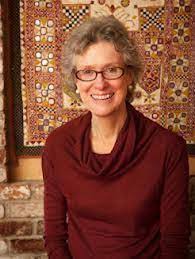Hochschild, Arlie Russell

Bio: (1940-) American sociologist. Arlie Russell Hochschild received her Ph.D. and taught at the University of California, Berkeley. Hochschild contributed to the development of several sociological fields: the sociology of emotions, the sociology of the family, and the sociology of work.
In her book The Managed Heart (1983), Hochschild observes how social structure, symbolic interaction, and ideology shape human emotions and their expression. She believes that there is an essential gender difference (strategy) between the expression of emotions in women and men. Public ideologies of emotions shape private emotional experience. Class position and ethnicity also influence the shaping and expression of emotions. Emotions have a signal communicative function because they define the position of an individual within a situation, as well as social expectations related to a situation.
Hochschild views the expression of emotions as a human activity (emotion-management) that is culturally determined, in order to express the anticipated emotions in each situation, but also the right amount of emotions. It divides emotional activity into „emotional work“, which manifests itself in a private context, and „emotional labor“, which manifests itself in a public social context. Emotional labor is most pronounced in the formal workplace, where it represents an extension of the capitalist desire to regulate interpersonal relationships in the workplace, which is especially evident in service activities. She also studies how the market influences the transformation of private emotional life in love and kinship relationships and concludes that human relationships are being commercialized. Social movements that act anti-systemically refuse to express emotions in accordance with the dominant social code, so emotions themselves become part of the social struggle.
In The Second Shift (1989), Hochschild studied empirical data on domestic work and concluded that there was a "stalled revolution" - women began to work more outside the household, but men did not start working more in the household. This has led to the situation that women spend, in addition to working on a formal job, another working day a week doing household chores, which Hochschild called the "second shift". While women are increasingly subject to the "Taylorization" of domestic work, that is, performing routine and repetitive household chores, they are increasingly exposed to the intensification of work and job insecurity. She believes that the combination of emotional management and gender differences at work leads to special and new forms of alienation within the post-industrial economy.
Fields of research
Capitalism Communication Community Economy Emotions Ethnicity Family Ideology Market Movements, Social Patriarchy Sex Work AlienationTheoretical approaches
Feminism, SociologicalMain works
The Unexpected Community (1978);
The Managed Heart (1983);
The Second Shift (1989);
The Time Bind: When Work Becomes Home and Home Becomes Work (1997);
The Commercialization of Intimate Life: Notes From Home and Work (2003);
The Outsourced Self: Intimate Life in Market Times (2012);
Strangers in Their Own Land: Anger and Mourning on the American Right (2016).

